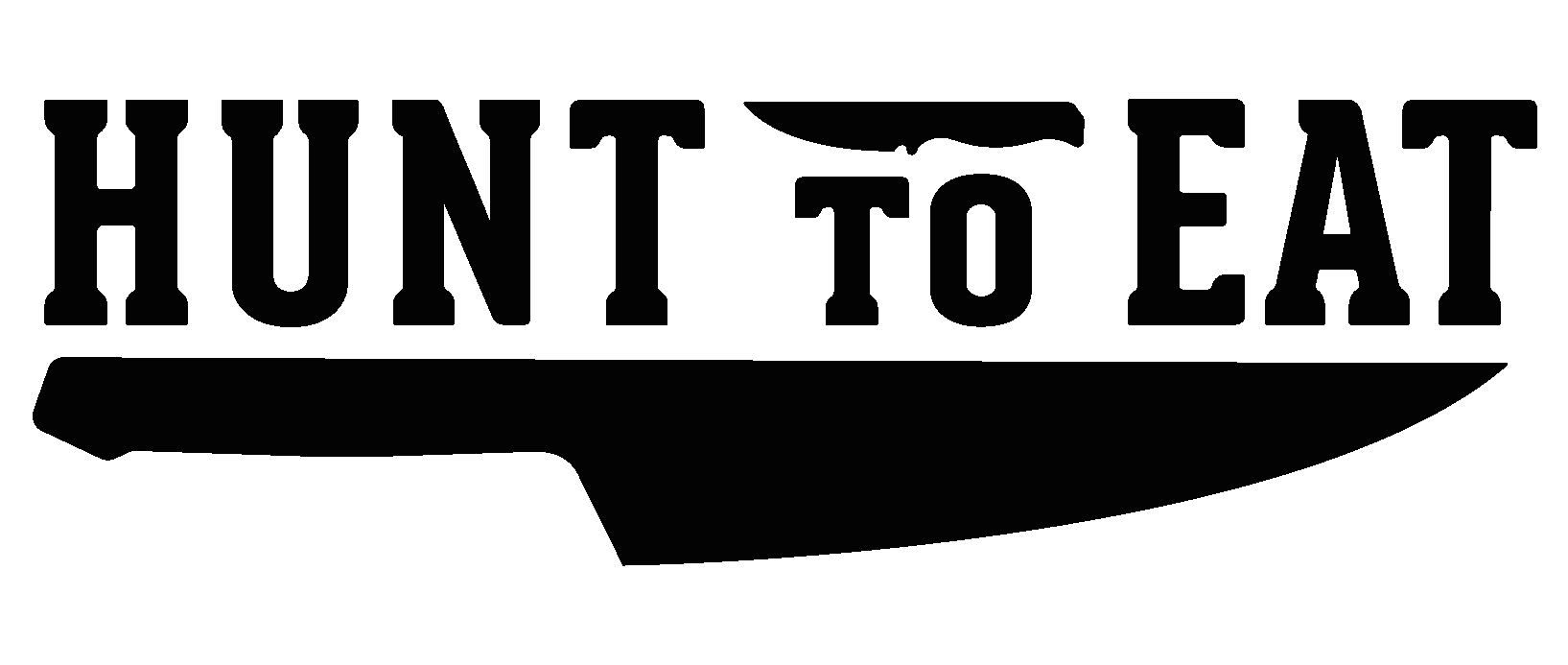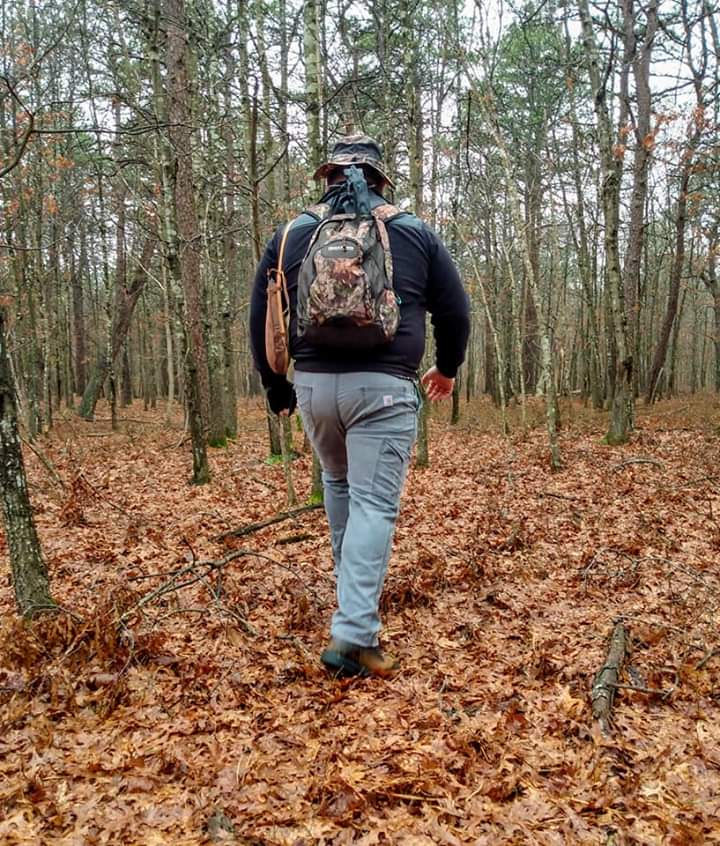Story by Gary Maerz
On my first hunt (October 2019), I hike in two hours before dawn. Through the pitch-black darkness, I hear a rustle in the bush some 20 yards away. As the green glow emanating from my hat brim clip light reaches the source of the noise, two deer are staring back at me. The GPS reveals it was the same exact location as when I kicked up the doe and fawn back in August. An enigmatic feeling sweeps over me; the excitement of staring down prey while at the same time acknowledging a sense of familiarity. I knew her and felt a level of attachment but at the same time the desire to ethically take a life to sustain my family.
Some hours later, as I was hiking out, I scout another trail and come within 53 yards of another doe. I nock an arrow but do not get an ethical shot and she walks beyond the boundaries of public land. My heart was racing. It was an absolute rush, new and exciting, and I want more.
Fashionably Late
We all have that friend that shows up to the party after everyone else has already settled into the flow of festivities. They almost invariably comment on how they are fashionably late. Well, I am a “Fashionably Late Hunter.” It sounds better than “Adult Onset," right? I mean, it's not a disease; not some condition we’ve been stricken with after the passage of pubescence. But what exactly do the above phrases infer? In the simplest terms, it is a designation for those who have come to hunting later in life. There doesn’t appear to be a specified age. However, as hunting is an activity one can begin during adolescence, anyone who begins as an adult seemingly fits the bill. Yet it is so much more.
Going Inside
The days of my youth were often spent outdoors. My grandfather and father were both in scouting. I was regularly treated to camping trips as a tag-along and eventually a scout. Additionally, my father introduced me to fishing when I was not yet four. Despite this time in the out of doors, hunting was unfamiliar to me. That changed when my parents purchased a trailer in the Pocono Mountains (Pennsylvania) during the summer before 4th Grade.
At “the trailer,” entire weekends (and several weeks in the summer) were spent running about the woods, coming home only to feed and sleep. It was there we met Ron; an avid hunter and highly resourceful man who would become a major life influence. Aside from the many life lessons he imparted, Ron also sparked my initial interest in hunting and exposed my family to the splendor of wild game.
The fascination with hunting grew. The desire to hunt with Ron was palpable and I registered for hunter education/safety when I was a senior in high school. A family commitment kept me from attending the course and suddenly life (college, late nights, career, graduate school, an engagement, career change, home purchase, wedding, and children) got in the way. The love of the natural world remained but an outdoor child settled indoors for the better part of two decades.
Going Wild
As my daughter grew and became increasingly self-sufficient, I spoke with my wife about re-introducing myself to a primary passion: fishing. At the same time, a friend of mine provided the impetus to go outside and expand my repertoire of wild endeavors. Two years later, at the tender age of 35, the idea of hunting again entered my consciousness and, for the first time, the household dialogue. Adult Onset-itis just got real.
Family Impact
One of the challenges a maturation activated hunter may face is maintaining balance. If you are joined to someone through love (and marriage), there is now an additional commitment of time and energy required of your significant other to tend home and family while you are in the field scouting, hunting, etc. When we married, my wife knew that I loved fishing. However, my time on the water was limited to an annual four-day trip to Canada (now Maine) and maybe a few days sporadically with Dad or one of my buddies. Over the last three years, the time spent on the water nearly quadrupled and now a request had been submitted for time in the field. Significant time outdoors was not part of the deal when we were married; hunting was not even on the radar. The potential difficulty of balancing familial needs and your time outdoors is no trivial task.
Barriers to Entry
The hunting community, especially those concerned with recruiting the next generation of hunters and welcoming them to the tribe, often uses the term “barriers to entry.” Among those barriers are having the necessary time, knowledge, and confidence to enter the woods and take ownership of your part to play in the circle of life. And to be sure, there are financial considerations as well.
The most straightforward issue is the financial aspect of hunting. Though you may be able to borrow or inherit some gear, you will likely have to make at least a few purchases. Among those are proper hunting clothes (merino wool recommended), boots, pack, field-dressing equipment, tree stands/ground blind, optics, your bow (or rifle), and the necessities to become proficient with that tool (such as accessories, targets, and range fees).
For many, there are not enough hours in the day. The idea of “making time” can seem laughable whether you have a family or not. Hunting is not an activity you can half-heartedly undertake. Aside from the hours spent in your hunter safety course, there may also be pre-requisite reading/homework. Additionally, you will have to set aside time for becoming familiar with your bow, target practice, and scouting.
And do not forget the maxim, “knowledge is power.” While knowledge can be obtained sifting through books, magazines, or YouTube videos, there are few sources better than an experienced mentor/friend. The lack of one can leave you feeling powerless. I was fortunate to have Ron and a friend who provided initial mentorship. However, Ron passed away in 2016 and the friendship I once enjoyed has waned. Scouting has been invaluable but without a friend to run the information past, we may not have a Rosetta Stone to fall back on.
A lack of experience and limited knowledge can result in a crisis of confidence. As a new hunter, you have more questions than answers. Not knowing how to be successful may be overcome by experience. However, there are still concerns about letting an arrow fly and not knowing what comes next. An arrow cannot be recalled like a dog in the brush; second-guessing can result in no shot or a poor shot. This thought process can be crippling.
Hunting Contagion
At this writing, I consider myself a multi-species angler and bow-walker. I have enjoyed scouting and earned a few good field stories (several of them comical). Quite a few questions have been answered and I have learned a good deal about myself. Each trip has provided intrinsic rewards and I am changed as a result. I feel as if I have caught something.
I now look at deer differently. The more I learn about their behavior, actively or passively, the more I feel connected to the species (whitetail). I had scouted a few places with minimal sign before I found my current hunting spot. On my initial scout (August 2019), I spooked a doe and fawn. It was thoroughly enjoyable and educational to watch her protect her offspring; there was the stamp, the snort, and then impressive acrobatics. I was in awe as she bound through the bush, easily clearing waist-high brush, with her fawn working hard to keep up but moving with similar grace.
The Latest Arrival
Where I once had a singular outdoor focus, I now find myself planning to maximize time between hunting and fishing. Striving to be a more complete outdoorsman will continue to be a major motivator. However, I also look forward to taking long walks with my bow, learning from my failures in the whitetail woods, and reveling in the pride of providing for my family. And while I may be fashionably late to the party, the only thing that matters is that I’ve arrived.
Are you a fashionably late hunter? Show off your new lifestyle with an Archer's Evolution hunting t-shirt!


